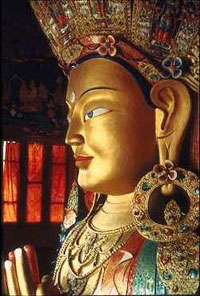How do we think about the global legacy of the European Enlightenment in lands far from Europe? To renowned postcolonial historian Dipesh Chakrabarty, a secular subject like history faces particular problems in handling practices in which gods, spirits, or the supernatural have agency, in life-worlds that are not secular. Find out why the very idea of historicizing carries with it some peculiarly European assumptions about disenchanted space, secular time, and human sovereignty.
Dipesh Chakrabarty is a social historian whose work focuses on theoretical issues in historiography and nationalism, particularly postcolonialism. Before joining Chicago's faculty, he taught at the University of Melbourne, where he was the Ashworth Reader in Social Theory and director of the Ashworth Centre for Social Theory. While in Australia, he was extensively involved as a public speaker for the Amnesty International campaign on human-rights abuses in India. He has been a visiting professor at University of California, Berkeley, the Indian Institute of Management in Calcutta, and Jawaharlal Nehru University in New Delhi.
Considered one of the most influential scholars in Asian studies, Chakrabarty is known for his work in modern South Asian history and historiography, postcolonial theory and its impact on how history is written, and comparative questions and politics of modernity. He has published numerous essays and reviews and has addressed conferences throughout the United States, Europe, Australia, and South Asia. He is a founding member of the series Subaltern Studies, co-editor of Critical Inquiry, and a founding editor of the journal Postcolonial Studies. He has also served on the editorial committee of Public Culture and the American Historical Review.
Chakrabarty received his B.Sc. from Calcutta University and his Ph.D. from the Australian National University.
Lawrence A. Kimpton Distinguished Service Professor of History and South Asian Languages and Civilizations, University of Chicago



